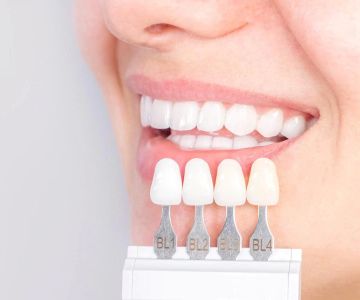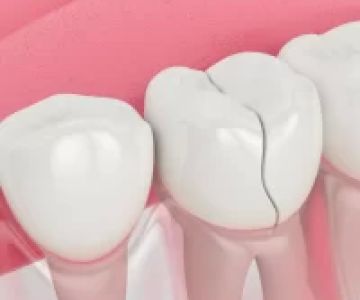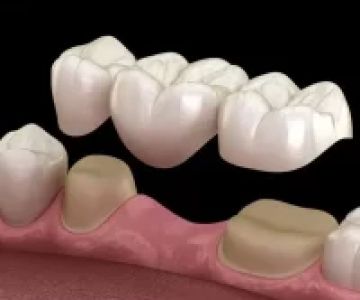Choosing Between Dental Implants and Bridges: Which Option Is Right for You?
- 1. Understanding Dental Implants and Bridges
- 2. Comparing Dental Implants and Bridges
- 3. Benefits of Dental Implants vs. Bridges
- 4. Factors to Consider When Choosing
- 5. How to Make the Final Decision
1. Understanding Dental Implants and Bridges
When you lose a tooth, you have several options for replacing it, with dental implants and bridges being two of the most popular solutions. Dental implants are permanent, titanium-based replacements for the root of a missing tooth, while dental bridges are prosthetic devices that fill in gaps where teeth are missing by anchoring to neighboring teeth. Both options restore the function and appearance of your smile, but they differ in terms of procedure, durability, and maintenance.
2. Comparing Dental Implants and Bridges
Understanding the differences between dental implants and bridges is crucial when deciding which option is best for you. Here’s a side-by-side comparison:
- Procedure: Dental implants require surgery to place a titanium post into the jawbone, followed by a period of healing. Bridges, on the other hand, involve preparing the adjacent teeth to support the prosthetic.
- Durability: Implants are highly durable and can last a lifetime with proper care. Bridges typically last 5 to 15 years, but they may require replacement due to wear or damage over time.
- Maintenance: Dental implants are low-maintenance; they require the same care as natural teeth. Bridges need to be cleaned under the false tooth, and the supporting teeth may require additional attention to prevent decay.
- Cost: Dental implants tend to be more expensive initially due to the surgical procedure, but they can be more cost-effective in the long run due to their longevity. Bridges are typically less expensive upfront but may incur additional costs over time.
Both treatments restore your smile, but they come with different considerations regarding procedure, cost, and long-term care. Understanding these differences will help you make a more informed decision.
3. Benefits of Dental Implants vs. Bridges
Choosing between dental implants and bridges depends on your specific needs, preferences, and oral health. Here are some key benefits of each option:
- Dental Implants:
- Permanent solution that mimics the function of a natural tooth.
- Helps preserve bone density by stimulating the jawbone.
- Low maintenance and easy to care for like natural teeth.
- Bridges:
- Non-invasive procedure with no surgery required.
- Faster solution compared to the multiple visits required for implants.
- More affordable upfront cost compared to implants.
Each option has distinct advantages, and your choice will depend on factors like your oral health, lifestyle, and budget. Dental implants are ideal for those looking for a long-lasting and low-maintenance solution, while bridges provide a quicker, more affordable fix.
4. Factors to Consider When Choosing
Before deciding between dental implants and bridges, it’s important to consider the following factors:
- Jawbone Health: Implants require a healthy jawbone to securely anchor the titanium post. If your jawbone has deteriorated, you may need bone grafting before proceeding with implants. Bridges do not require surgery and are a good option for those with insufficient bone density.
- General Health: If you have underlying health conditions such as diabetes or gum disease, implants may not be suitable unless these conditions are properly managed. Bridges are a less invasive option for those with health concerns.
- Cost and Insurance: Dental implants are typically more expensive than bridges. However, many insurance plans cover bridges, and some plans are beginning to cover a portion of implant procedures. It’s essential to check with your insurance provider before making a decision.
By evaluating these factors, you can better determine which option fits your needs, ensuring both functionality and comfort in the long term.
5. How to Make the Final Decision
To make the best decision for your oral health, it’s essential to consult with a dental professional. During your consultation, your dentist will assess your oral health, discuss your preferences, and help you understand which option will provide the best long-term results based on your unique circumstances.
If you’re still uncertain, consider the experiences of others who have made the choice. For example, Sarah, a 45-year-old patient, was initially hesitant about dental implants but found that they provided a more comfortable and natural solution than bridges. Alternatively, John, who needed a quicker solution, opted for a bridge and was satisfied with the result.
Both options can restore your smile, so discussing your personal needs with a dentist will help you make an informed choice that aligns with your goals and budget.
If you’re ready to take the next step in restoring your smile, visit Dentistry Toothtruth for more information and to schedule a consultation with one of our experienced dental professionals.







 Harbor Cove Dental5.0 (191 review)
Harbor Cove Dental5.0 (191 review) Palo Alto Oral Health4.0 (18 review)
Palo Alto Oral Health4.0 (18 review) My Orthodontist - Deptford4.0 (555 review)
My Orthodontist - Deptford4.0 (555 review) Rosedale Dental: CJ Jang, DDS4.0 (35 review)
Rosedale Dental: CJ Jang, DDS4.0 (35 review) Sugar Hill Family Dental4.0 (83 review)
Sugar Hill Family Dental4.0 (83 review) The Downtown Dentist5.0 (6 review)
The Downtown Dentist5.0 (6 review) The Importance of Oral Health Education During Pregnancy for a Healthy Pregnancy
The Importance of Oral Health Education During Pregnancy for a Healthy Pregnancy Best Tips for Brushing Your Teeth Properly for Healthy Gums: Essential Techniques for Oral Health
Best Tips for Brushing Your Teeth Properly for Healthy Gums: Essential Techniques for Oral Health Why Skipping Dental Checkups Can Lead to Bigger Oral Health Problems
Why Skipping Dental Checkups Can Lead to Bigger Oral Health Problems Advantages of Porcelain Dental Restorations
Advantages of Porcelain Dental Restorations How Can Diabetes Cause Tooth and Gum Problems? Preventing and Managing Oral Health Issues
How Can Diabetes Cause Tooth and Gum Problems? Preventing and Managing Oral Health Issues Healthy Habits for Promoting Good Oral Health and Hygiene: Tips for a Healthy Smile
Healthy Habits for Promoting Good Oral Health and Hygiene: Tips for a Healthy Smile